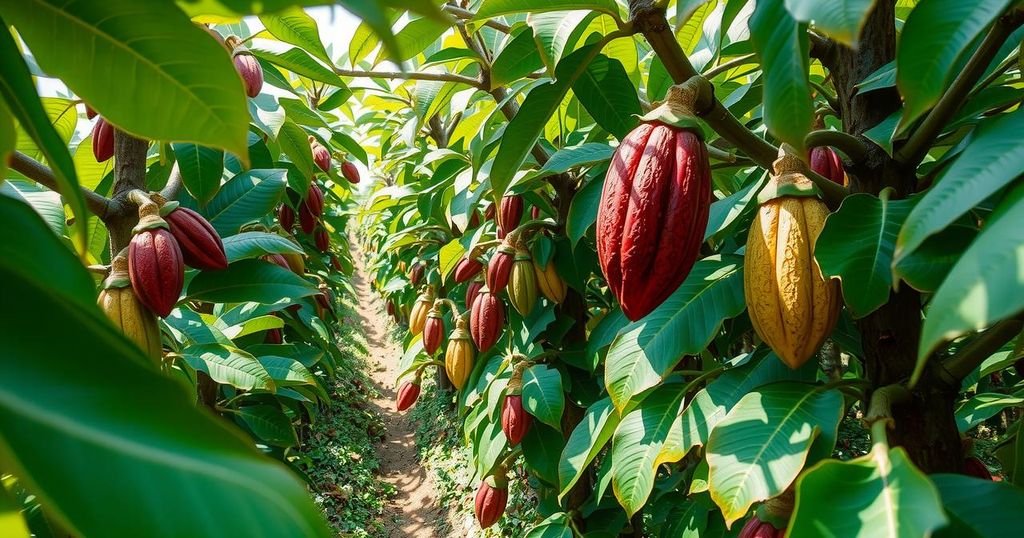The Kawa fund aims to raise 1 billion reais ($176 million) by 2030 to provide loans to small cocoa producers in Brazil. Initially, it will lend 30 million reais to 1,200 farmers in Bahia and Para. This initiative addresses historical borrowing challenges faced by small farmers and seeks to improve productivity amid rising cocoa prices and reduced production levels.
In a significant development, four Brazilian organizations have introduced the Kawa fund, targeting the raise of 1 billion reais ($176 million) by 2030. The fund’s primary goal is to extend loans to small cocoa producers across Brazil, facilitating operational expansion. Initially, approximately 30 million reais will be allocated to assist 1,200 small-scale farmers located in Bahia and Para.
Historically, small cocoa producers have encountered challenges in acquiring adequate credit and necessary technical assistance for enhancing productivity. Vinicius Ahmar, a representative from the Arapyau Institute, highlighted the issue, emphasizing that most cocoa production is concentrated among smallholder farmers who lack the means to invest in their operations or improve their technique.
The introduction of the Kawa fund is timely, particularly given that prominent cocoa-producing nations such as Ivory Coast and Ghana are experiencing significant crop damage due to unfavorable weather conditions and other adverse factors, which have consequently increased cocoa prices. Brazil also faces challenges, with its cocoa production having decreased nearly 20% last year, as noted by Anna Paula Losi, president of the Brazilian Association of Cocoa Processing Industries.
Under the terms of the Kawa fund, cocoa farmers will be granted three years to repay the loans, with an introductory six-month grace period. The loans, primarily intended for the purchase of essentials like fertilizer and irrigation equipment, will carry an annual interest rate of 12%.
Approximately 85% of cocoa farmers in Brazil are considered marginal players within the financial system, struggling to access loans. Furthermore, as about 80% of Brazil’s cocoa output originates from small-scale farmers, this dynamic perpetuates low incomes and productivity levels within the sector.
The establishment of the Kawa fund marks a critical investment movement aimed at empowering small cocoa farmers in Brazil by improving their access to financial resources. By providing loans and support, the initiative strives to enhance productivity and income for those who have traditionally faced systemic challenges. As cocoa prices rise due to global supply issues, this fund could play a pivotal role in stabilizing Brazil’s cocoa industry while promoting sustainable agricultural practices among small producers.
Original Source: money.usnews.com






